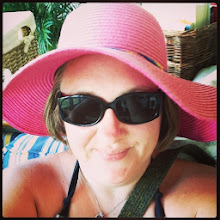I am a lover of books. You almost have to be to want to write them. Even before college, however, I was always fascinated by what other writers had to say. The advice they have on writing, publishing, beating back writer's block and sharing their secret rendezvous with the muse. It's like sitting in on a secret conference with someone you admire, listening to their methods and exploring their techniques. The most inspiring writers who have delved into the "How to..." market have not approached the genre with holier than though professorial pomp, but often incorporated stories of their darker days as writers.
One story that touches me every time I read is Stephen King's memories of writing Carrie. He was so frustrated and agitated with the script that he wanted to throw it away, and probably would have had it not been for the insistence of his wife Tabitha that it was some of the most brilliant fiction she had ever read. On her encouragement, he finished the story and went on to become the master of horror we know and love today. He has often spoken of the rejection letter nail on the wall so thick with rejection that he didn't think he would ever hear the encouraging words, "We're pleased to inform you that..." Imagine if his wife hadn't pushed. If she hadn't seen in him that which he was most afraid to see in himself: success.
I am a sucker for books about writing. I think that no matter what your level of education is there is always something you can learn from others in your craft. There are techniques you would never have imagined, scenarios you may not have come up with without a little nudge. Many writing books come complete with instructions, tips and writing exercises, which is what the book I am reading now is all about.
Follow-up to his The 3 A.M. Epiphany, Brian Kiteley released The 4 A.M. Breakthrough: Unconventional Writing Exercises that Transform Your Fiction. Kiteley's intent with the book is to teach writers to make creation itself a more organic, automatic process. I am only on the first exercise, titled Parataxis, a 500 word prompt with two options. One of the things I like about Kiteley's book is that he draws references from other well-known source material to show not only example but how it works and the usefulness of the techniques.
There are two hundred exercises in the book overall. That's two hundred prompts that offer you the opportunity to explore a side of your creativity you may not have even known was there. It's a great tool to get you off of the excuse wagon and into the writer's seat. I highly recommend that you check this book out. As I said above, even as a master craftsman or published writer, you should never stop learning about your craft. There is always something to discover.
Brian Kiteley is a creative writing professor at the University of Denver. You can learn more about him by checking out his home page: Brian Kiteley. The site has information about his other books, including an upcoming fiction novel scheduled to release in the fall of 2009.
Happy Valentine's Day
3 hours ago








3 comments:
I'm going to have to pick up that book. I love buying books on writing as well.
I'm the opposite, I have tried reading 'writing books' but I just don't seem to get much out of them. I get more from reading good books (and not-so-good books) and seeing for myself what makes them work (or not work, as the case may be). Interesting to read your experiences :)
Thank you for the recommendation. I've not read anything of Kiteley's. I'm not much for writing prompts, but do like practical advice on writing.
Post a Comment